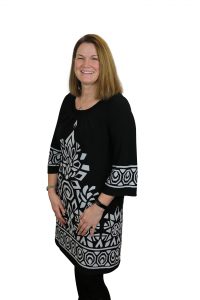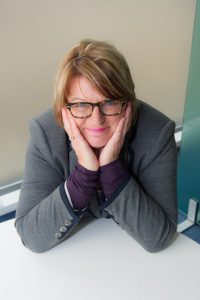International Women’s Day: Birmingham’s top businesswomen weigh in on what needs to change

Every year, International Women’s Day highlights the biggest roadblocks to gender equality. This year, the pressure is on for the West Midlands, which has the second largest pay gap between men and women, according to the latest PwC Women in Work Index.
There has been progress – a closing of the gap from 26% to 20% between 2000 and 2017 – but much work is needed to get the number to zero.
A higher proportion of female employers is one way to tackle pay gap disparities, according to the PwC report. Sarah Crawley, chief executive of West Midlands-based social enterprise experts ISE, agrees. She says women working in the social enterprise sector – whom she says makes up around half of the workforce – are generally very proactive in supporting other women, and that this is the key to change.
“There’s a need from women to create an environment where they can test ideas, and they need people to inspire them so they can learn about starting a business.”
But, she says, this support must be inclusive in other ways, too.
“We work at grassroots, with women who haven’t had a university education. Often they come from poorer communities,” Crawley says.
Crawley, who launched a Women’s Enterprise Hub in Sparkbrook in 2015 to support women in business, says there needs to be more places for women to go to be supported by other women, where they can test ideas without feeling vulnerable and get used to being in new networks of people.
Kathryn James, managing director of entertainment company NEC Group Conventions and Exhibitions, says the challenge in her industry come later on women’s career ladder.
“Getting people in the door, in terms of gender balance, isn’t an issue. But we see a female dropout at mid-management level – so it’s more about how you keep people in the mix.”
She says the key to closing the pay gap is transparency.
“We take the responsibility not to be complacent, and our gender pay gap is just over 7%. It should be zero, but it gives us a focus of what more we need to do as a significant employer in the West Midlands.
“If we can all be clear about the gender pay gap action plans, that feels like the way to make progress, coupled with a good level of transparency.”

Kathryn James, managing director of NEC Group
But James’s ideas of how to achieve gender equality in the workplace differs from Crawley’s emphasis on women supporting women. First, James doesn’t believe in positive discrimination.
“We’ll always want the best candidate,” she says.
Instead, the NEC Group goes into schools to educate young people on their career options, which it uses as an opportunity to tackle gender stereotypes.
“We take responsibility in helping young people understand what career path might be on offer, but this is gender-neutral. For example, we give out the message that chefs don’t have to be boys.
“We had our first female rigging apprentice this year, and we have female chefs. We take those people out with us to make the point you don’t need to fall into gender stereotypes.”
“I’d love to see a more overt curriculum around how females build confidence and how to be prepared to step forward into the spotlight more.”
“It’s about instilling in individuals the self-belief that if they want to achieve something, they absolutely should give it their best. There shouldn’t be any barriers for any individual’s goals or dreams, absolutely irrespective of gender.”
This approach is influenced by James’s own upbringing, with working-class parents and five siblings, and which involved her “mucking in” with her two brothers.
“I certainly wasn’t a shrinking violet. I grew up in an environment where I was told not to feel excluded because I was a girl. This was a positive foundation for how I feel about myself.”
But while James admits she’s never experienced the “glass ceiling,” she has witnessed it industry-wide. When she was the MD of Luton Airport in 2004/5, James says there was only one other female in the whole country doing in the same role.
One issue, she says, is that many women would acknowledge that they’re not assertive enough.
“We females have to be overtly aware of this. We stand on the side-lines a little too long, on occasion, where male colleagues would say they can do something whether they can or can’t.”










